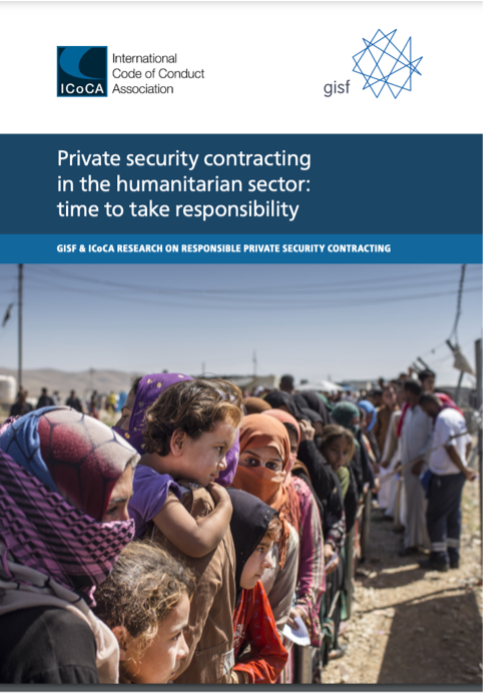Over the last decade, many have witnessed the increasing presence of private security providers (PSPs) in humanitarian organisations’ security risk management practices. Generally, contracted guards posted in front of compounds are the most visible manifestation of this, and have become part of the daily life of many humanitarian workers.
Yet, contracting PSPs often raises important doubts and concerns among the humanitarian community, particularly regarding the potential clashes with humanitarian principles and acceptance this practice can entail. Despite these concerns, there is little information available on how widespread these contracting practices are, and little discussion addressing the concerns contracting private security providers raises.
During the last six months, ICoCA and GISF have been working on a collaborative project to try and remedy to this knowledge gap. Through a joint research project on humanitarian organisations’ current private security contracting practices, our aim was to both shed more light on the issue and use the research findings to inform the development of practical guidance towards more responsible private security contracting. The research was composed of a survey and interviews with representatives of humanitarian organisations, mainly humanitarian NGOs.
The findings were first presented in a Webinar in October and served as the basis for an ICoCA/GISF policy brief. ICoCA and GISF are now glad to publish the full results of this study in joint report, Private Security Contracting: Time to Take Responsibility.
